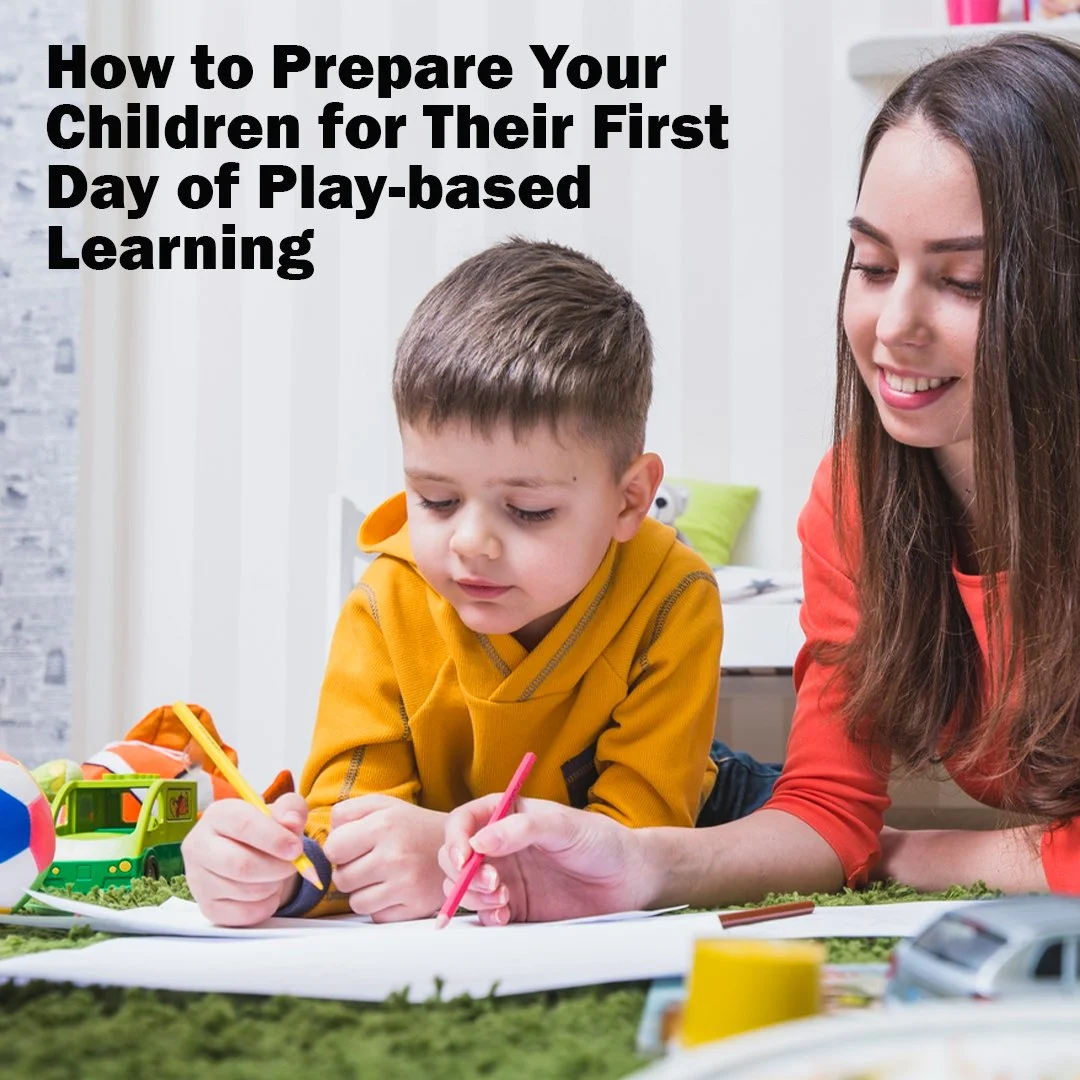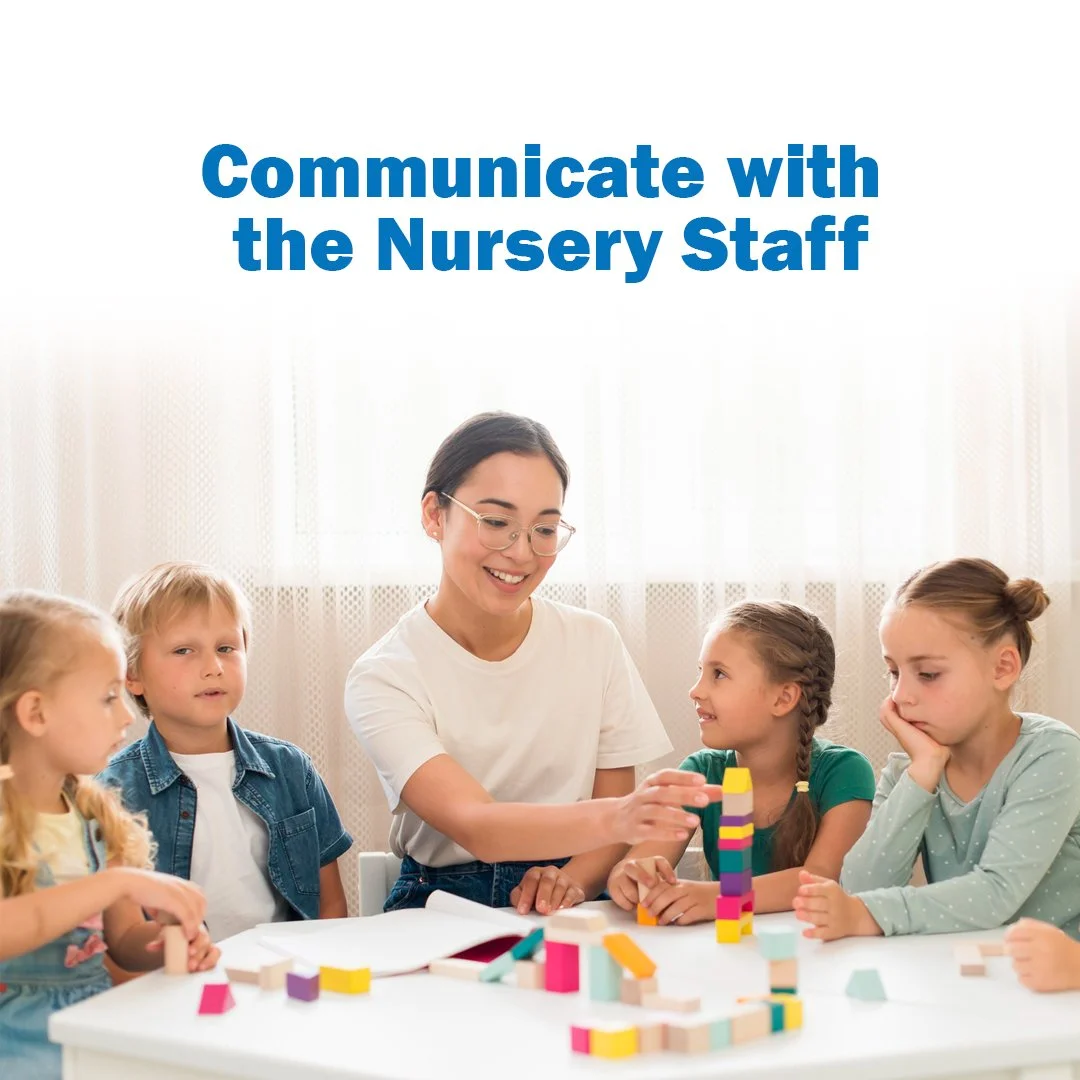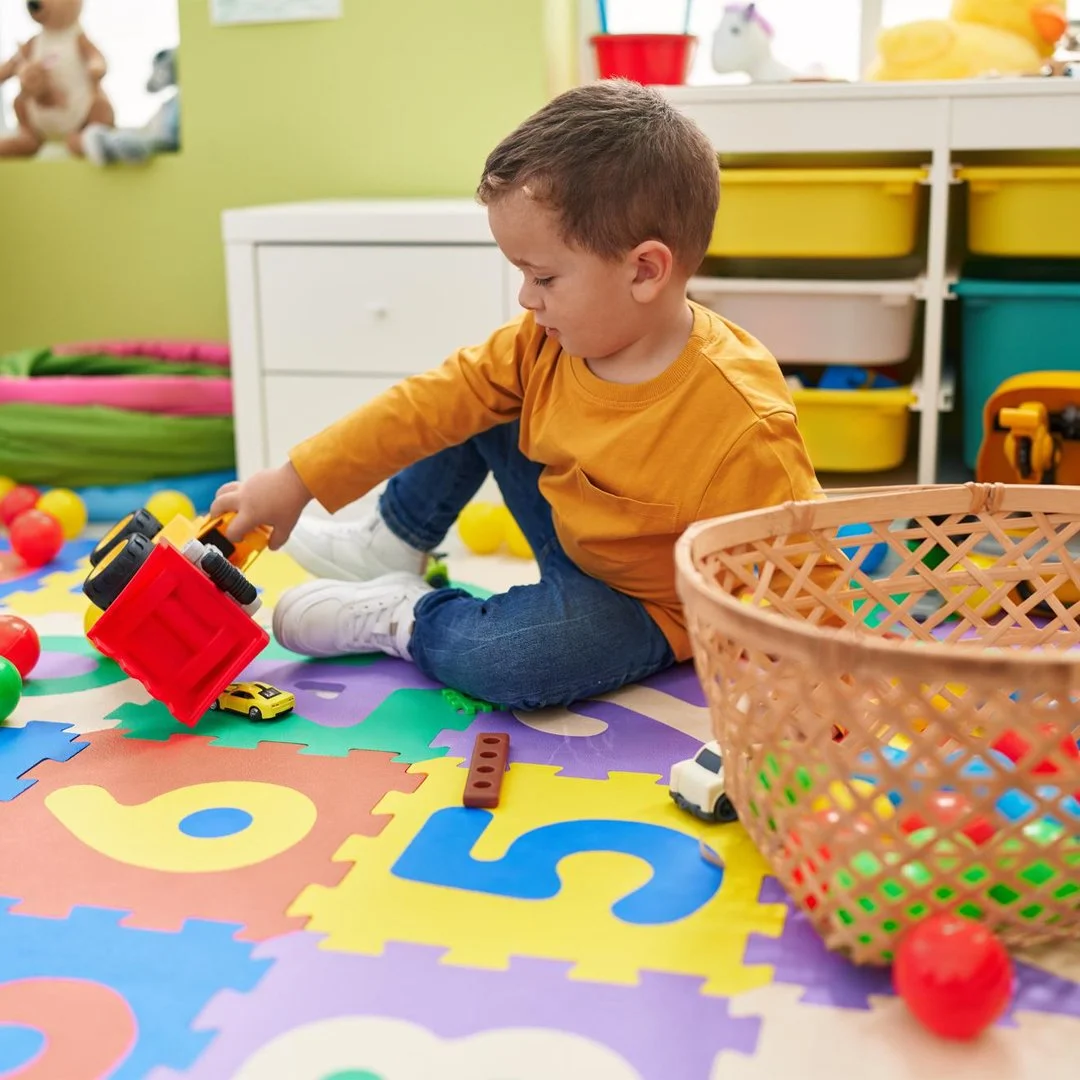How to Prepare Your Children for Their First Day of Play-based Learning
Starting a new journey like the first day of play-based learning is always a challenge, especially when your little one is involved. The excitement of their first day at play-based learning is often tempered by the anxiety of separation, both for them and for you. We understand—it’s not easy to send your children away, even if it’s just for a short time. But this step is crucial for their growth and development, helping them learn essential skills in a supportive environment.
At Wonderland Play, we recognize the importance of early childhood development. We're here to support you and your child through this transition, easing anxieties and building confidence along the way.
In this blog, we’ll guide you through practical steps to prepare your child for their first day at play school. From familiarising them with the nursery environment to encouraging independence and managing separation anxiety, we’ll cover it all. You’ll discover how to create a consistent routine, pack comfort items, and communicate effectively with nursery staff—everything you need to ensure a smooth start.
Join us as we navigate the challenges and Soft Play Zone in UK together. Let’s empower your child to thrive in their early learning journey, one step at a time.
Understanding the Importance of Play-based Learning
Play-based learning is more than a way for your child to spend a few hours away from home; it lays the foundation for early childhood education. In a structured environment, children learn essential life skills like sharing, following instructions, and cooperating with others through play. This blend of fun and formal learning helps toddlers thrive socially and prepares them for future education. Here are some key benefits of playschool for your child.
The Social Benefits of Starting Play-based Learning
Play-based learning gives children the opportunity to meet and interact with peers.
It helps children develop social skills like sharing, taking turns, and communicating.
Your child learns to express themselves and build friendships.
It creates a supportive environment for children to overcome shyness and gain confidence.
Social interactions at play-based learning lay the foundation for healthy relationships.
Cognitive Development Through Play
Structured play activities help improve problem-solving and creativity.
Children engage in puzzles, building blocks, and group games to enhance cognitive skills.
Play-based learning challenges children’s memory, attention, and logical thinking through fun activities.
Learning through play promotes curiosity and critical thinking.
Playschool encourages children to explore, experiment, and discover new concepts.
Emotional Growth and Independence
Play-based learning fosters emotional resilience by gradually introducing children to new environments.
Children learn to cope with separation from home, building independence.
Playschool provides emotional support through caring teachers and peers.
It helps children feel secure and confident in exploring the world outside the home.
Developing emotional stability at play school prepares them for future schooling experiences.
How Play-based Learning Support Development
Play schools blend guided activities with free play, supporting well-rounded development.
The Structured Soft Play Zone in Newton Abbot enhances social, cognitive, and emotional growth.
Children learn new skills through both independent and group activities.
The balance of guided and free play encourages creativity, problem-solving, and communication.
Playschool provides a fun yet educational environment for children to thrive.
Now that we understand the importance of play school and how it supports your child’s development, it’s time to focus on getting them ready for their first day. Let’s explore practical steps to make the transition smoother and stress-free.
Tips for Preparing Your Child for Their First Day
Getting your child ready for their first day at play-based learning can be daunting, filled with both excitement and anxiety. To ease this transition, take small steps that build confidence and reduce fears. Here are some tips to help make the experience smoother and more enjoyable.
Familiarise Your Child with the Nursery Environment
Play schools blend guided activities with free play, supporting well-rounded development.
The Structured Soft Play Zone in Newton Abbot enhances social, cognitive, and emotional growth.
Children learn new skills through both independent and group activities.
The balance of guided and free play encourages creativity, problem-solving, and communication.
Playschool provides a fun yet educational environment for children to thrive.
Now that we understand the importance of play school and how it supports your child’s development, it’s time to focus on getting them ready for their first day. Let’s explore practical steps to make the transition smoother and stress-free.
Tips for Preparing Your Child for Their First Day
Getting your child ready for their first day at play-based learning can be daunting, filled with both excitement and anxiety. To ease this transition, take small steps that build confidence and reduce fears. Here are some tips to help make the experience smoother and more enjoyable.
Familiarise Your Child with the Nursery Environment
Visiting the nursery with your child before their first day can reduce feelings of unfamiliarity. By allowing them to explore the space, meet the teachers, and even play with some of the toys, you help them create a positive connection with the environment.
You can introduce the idea of play-based learning by talking about how fun the activities will be and how they’ll get to meet new friends. This makes the experience exciting rather than daunting.
Use Wonderland Play centres as a practice ground. Their safe, structured play areas give children the chance to experience a similar setting, boosting their confidence ahead of nursery.
Establish a Consistent Routine
Creating a consistent morning routine similar to the nursery schedule can work wonders in helping your child adjust. Start by waking them up at the same time each day, having regular meal times, and practising any activities they’ll do at nursery, like dressing themselves or having quiet time.
By gradually aligning your home routine with the nursery’s, your child will feel more at ease when faced with the new structure.
Encourage Independence
Fostering independence before their first day can build your child’s confidence. Encourage them to take on small tasks such as putting on their shoes, packing their backpack, or cleaning up after playtime.
Use positive reinforcement to celebrate their small victories. This not only boosts their self-esteem but also helps them feel capable of handling new experiences without feeling overly dependent on you.
At Wonderland Play, our equipment is designed to promote independence by encouraging toddlers to balance and climb on their own. This helps them develop motor skills and self-reliance.
Talk About the Nursery Experience Positively
The way you talk about nursery can greatly influence how your child feels about it. Keep the conversation light, fun, and exciting. Share stories about the new friends they’ll meet, the toys they’ll play with, and the activities they’ll enjoy.
If your child expresses any fears, address them gently with a reassuring tone. Let them know it’s normal to feel nervous but emphasise the fun side of the nursery experience.
Focusing on the positives helps alleviate their anxiety, ensuring that they look forward to their new adventure.
Practice Separation
One of the biggest challenges for both parents and children is managing separation anxiety. To help your child prepare, start by leaving them with a trusted relative or babysitter for short periods.
Gradually increase the amount of time you spend apart, which will make the separation on their first day at nursery feel less overwhelming.
Wonderland Play provides a supervised environment where children can safely experience short separations, allowing them to gradually build comfort with being apart from you. Wonder Land allows parents to stay with their children, enabling them to watch their children enjoy and grow.
Pack Comfort Items
Letting your child bring a favourite toy, blanket, or another comfort item to the nursery can be a great source of emotional support. These items act as a little piece of home that they can turn to whenever they feel anxious or homesick.
Explain to your child that their comfort item will help them feel secure throughout the day, reminding them that even though they’re away from home, they’re not alone.
Communicate with the Nursery Staff
Open communication with nursery staff is essential for a smooth transition. Discuss your child’s needs, preferences, and any concerns you may have to ensure they receive the right support.
Regular check-ins with the staff will help you stay informed about your child’s progress and ensure that any potential issues are addressed early.
Building a strong relationship with nursery staff gives you confidence and helps your child feel more comfortable in their new environment.
Now that you’ve prepared your child in these key areas, it’s time to address the first-day jitters. Let’s explore how Wonderland can be a perfect choice in the UK.
Why Wonderland Play Centres
Choosing the right play environment for your child is a crucial step in fostering their development and preparing them for nursery or play school. With so many options available, it can be challenging to decide between outdoor playgrounds, soft play centres, or structured play facilities like Wonderland Play. In this section, we’ll break down the differences to help you make the best choice for your child.
1. Wonderland Play vs. Traditional Playgrounds
Traditional outdoor playgrounds offer open spaces for children to run and play, but they often lack structure and supervision. While playgrounds can be fun, they don’t always provide the level of safety that young toddlers need, especially when parents can’t monitor them every second.
Wonderland Play, on the other hand, is specifically designed for younger children with safety as a top priority. Our secure environment features padded play areas, soft surfaces, and equipment tailored to toddlers’ developmental needs, reducing the risk of injury.
For parents looking to ease their child into social play and independent activity, Wonderland Play offers a more controlled and supportive environment than traditional playgrounds.
2. Safety Features: Wonderland Play vs. Soft Play Centres
Soft play zone provide a cushioned, indoor environment for active play, which is great for physical activity, but they often focus primarily on fun and not on structured learning or development.
At Wonderland Play, safety and developmental growth go hand in hand. Our play equipment is designed not only to keep children safe but also to promote skills such as balance, coordination, and climbing. These activities are vital for preparing children for physical activities at nursery.
With a dedicated staff to oversee and guide your child’s play, Wonderland Play centres provide the balance between safety and skill development that soft play centres often lack.
3. Developmental Benefits of Wonderland Play
Wonderland Play focuses on nurturing both the physical and social development of children. Our equipment encourages toddlers to balance, climb, and explore independently, all while developing key social skills by interacting with other children.
Traditional playgrounds and soft play centres may offer physical play, but they often lack the structured, developmental approach that Wonderland Play provides. We ensure that each activity not only entertains but also contributes to your child’s growth.
For parents concerned about preparing their children for nursery, Wonderland Play’s emphasis on skill-building helps them gain confidence in performing tasks independently, such as climbing or balancing—important milestones in early childhood education.
4. Unique Features of Wonderland Play for Pre-Play School Preparation
One of the most unique aspects of Wonderland Play is that it’s designed to mimic early learning environments. This means your child gets to experience activities similar to those they’ll encounter at nursery, helping them adapt more easily when the time comes.
By allowing children to practise social interaction, independent play, and even basic routines in a play-centre setting, Wonderland Play gives them a head start in adjusting to the structure and expectations of play school.
For parents looking for a space where their child can grow both socially and cognitively while having fun, Wonderland Play is the ideal environment to prepare them for their first day at nursery.
Conclusion
Preparing your child for their first day at play school is an exciting but often emotional journey. Throughout this blog, we’ve explored how Wonderland Play can be a valuable partner in this process, helping your little one develop crucial skills like independence, social interaction, and confidence. By familiarising them with structured play environments and encouraging their growth through fun activities, Wonderland Play offers the perfect setting for a smooth transition to nursery life.
If you’re looking for a hands-on way to prepare your child for play school, Wonderland Play is here to support you every step of the way. With our safe, skill-building environment, your child will not only have fun but also develop the foundation they need for a successful start.
Ready to get started? Visit Wonderland Play today and help your child gain the skills and confidence they need to thrive in their new play school adventure!
FAQ’s
-
At Wonderland Play, we plan play-based learning by creating a structured yet flexible environment that encourages children to explore, experiment, and engage in hands-on activities that promote social, cognitive, and emotional development.
-
An example of a play-based approach at Wonderland Play is using role-playing games where children take on different characters, helping them develop communication skills, creativity, and cooperation through imaginative play.
-
To apply play-based learning, integrate guided activities alongside free play, allowing children to naturally explore new skills while teachers provide gentle guidance to enhance their learning experience.
-
The teacher's role is to facilitate learning by setting up engaging activities, observing the child’s play, and providing support when needed to foster curiosity and learning without direct instruction.
-
Yes, play-based learning is a strategy that uses playful activities as a method to help children develop essential skills in a fun, interactive, and developmentally appropriate way.










